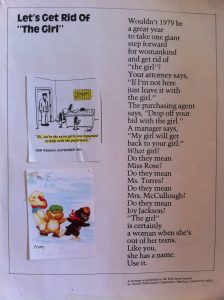 I’m passionate about celebrating the privilege of living in a place so beautiful that C.S. Lewis modelled Narnia on it. Carlingford Lough & the Mournes is where he spent childhood summers with his grandmother.
I’m passionate about celebrating the privilege of living in a place so beautiful that C.S. Lewis modelled Narnia on it. Carlingford Lough & the Mournes is where he spent childhood summers with his grandmother.
I’m passionate about working to teach entrepreneurship, creating jobs and bringing investment.
The granddaughter of a reluctant emigrant, I returned a century after he left to find work. The children of this island are leaving again. We are exporting 1000 a week. 54,000 left in a 12-month period between 2010 & 11.
Sadder still is we are now exporting our first generation reared in peace. We must focus on exporting their intellectual property, not our children.
I am passionate that to do this, to create jobs and have our children take their place on the world stage, they must find their voices.
Whatever does that mean?
Tolstoy suggested that everyone wants to change the world, but nobody wants to change themselves.
If we are going to compete in a global economy, we are going to have to sell our location, our gifts, our talents and ourselves. We just aren’t very good at that.
Reared with generations of conflict our parents and we were taught to “not get above our station”, not “raise our heads above the parapet” and for some of us, to be unfailingly polite. Fitting in, sometimes invisibly, mattered, so from a young age we were silenced.
How? Well, in my Irish American family, with shame and humour. Oh, the “reared in conflict” way of being crossed the pond.
Delighted to be meeting my dad and brother for dinner, I confidently strode in with a new, 1975 permanent – the rage of the day. Was I greeted with: “you look nice”? No. “Hi, love, how are you”? No. A hug? No.
My father, his loving blue eyes, glaring over the rim of his glasses said:
“My, don’t you look like the ass-end of a poodle”.
Every time I saw him for the next six months, I blew that perm out straight. Never wore a perm curly again!
Fifteen years later, while studying counselling, I read that the Irish discipline their children by chastising with shame and humour. Definitely. I skipped to the Italians, my mother’s tribe, they didn’t. Then I read about my husband’s ethnic background. They didn’t chastise at all – they lavished praise and encouragement.
Oops! An “aha” moment: for the better part of two decades, when he’d done something that annoyed me, I made a joke. He thought I was amused. He continued the behaviour. He never got the “cease and desist” message.
I took the lesson on board in my personal relationships, framed my communications with clients and coworkers more carefully and never gave it a conscious thought again.
Until I moved to Ireland.
I walked into a village butcher shop, asked for brisket and went on to describe it.
“What would you be wantin that for?”
“My children are coming and it’s their favourite meal.”
“Well, your children will just have to learn to eat Irish.”
(momentary stunned silence)
“Well, I will learn to ‘eat Irish’, my guests will learn to ‘eat Irish’, but my children will have what they have always had, I’ll be in tomorrow at 2 to pick it up.”
On leaving I had two reactions. Initially, simply dumbfounded; then shocked by my response. In spite of believing that I no longer defaulted to adaptive responses learned in childhood, I’d been close to changing my order.
Had it been for myself or for a guest, I likely would have. But no, only because it was for my children!
They have been the motivation for the most significant life changes I have made.
In my office in Newry, I observed someone a bit younger than I tense up. Stiff shoulders, straight back – but why. Weeks later I observed it again. A bit after that I asked what was happening?
“Didn’t you hear it?”
“Hear what?”
“The helicopter”
No, these American reared ears don’t hear – or listen for helicopters. It means only a traffic report, an air ambulance, a visiting dignitary ferried from an airport.
Not so for my border colleagues and neighbours. The sound of a helicopter catapults them back in time. They know in their bones this sound means danger.
My American childhood, unencumbered by conflict, allows me to meet and greet a police officer – feeling secure and safe. No so for my border and Northern Ireland reared neighbours. They are reactive, still carrying the fear and/or the rage of past encounters.
These adaptive responses – survival skills – served them well during the troubles. They no longer do. Now it is problematic; as our reactive responses do not serve our children well.
Do I want them to “get over it”? Absolutely not!
The pain and trauma of generations of conflict needs to be honoured. It needs to be talked about. Not having had an unencumbered childhood is a loss. We must individually and collectively grieve it.
For our children, though, we can change our behaviours. Why?
Because, in our automatic, adaptive responses we transmit to our children our fear and our anger.
Because in our effort to care for them we rear them as we were reared.
“Don’t put your head above the parapet” (Don’t take chances)
“Don’t be getting above your station” (Quiet that ambition)
“You won’t be bringing shame on this house” (Don’t tell the truth)
To take their place on the world stage our children need to “put their heads above the parapet”; To lead in a global economy they need to “get above their station” and to model to the world how a post-conflict society comes to thrive – they need to tell the world the truth:
That it was hard; their parents, grandparents and great, great grandparents were wounded and scarred. Some neither forgave nor forgot – but in service to the future, they made peace, spoke civilly and kindly to each other so that in the space between peace and prosperity our children could throw off our survival skills and adopt their own ‘thrival’ skills.
Will it work?
Back to the butcher. I’d related the story in a group I was running – as an example of assertion vs. cheekiness. I ran into a woman 6 months after it ended.
“I have a ‘butcher’ story for you”
“You, do?”
“I remembered that you said speaking up, asking for something you don’t see or sending something back presented an opportunity for a shopkeeper to serve.
So I asked: Do you have any rhubarb?
“No, and I don’t know why. John up the road has a field of it. Leave it with me and come back tomorrow.”
A few hours later there was a knock on her door. The lad from the butcher’s, holding a bunch of rhubarb.
“He said to give you this.”
We can throw off the adaptive behaviours, and model new and assertive ones better suited to the 21st century.
One day, one transaction, one kind and civil conversation at a time. For our children.
I know it will take time, but I come from a tradition that says restoring the earth and repairing the world is our obligation – “Ours is not to complete the task, but neither may we desist from the labour”. (Ethics of the Fathers)
I am proud to live among the people who made the peace. I am reminded too of an Irish expression I didn’t understand when I arrived in a hurry to do everything. I appreciate it better now:
“We’ll get there.”
Thank you to Frank Kernohan from Corporate Image for a video of the talk.


 This blog is a relaunch of one that I started in 2009 in support of an enthusiastic mid-life relocation to Ireland while embarking on the path of a reluctant entrepreneur.
This blog is a relaunch of one that I started in 2009 in support of an enthusiastic mid-life relocation to Ireland while embarking on the path of a reluctant entrepreneur.
